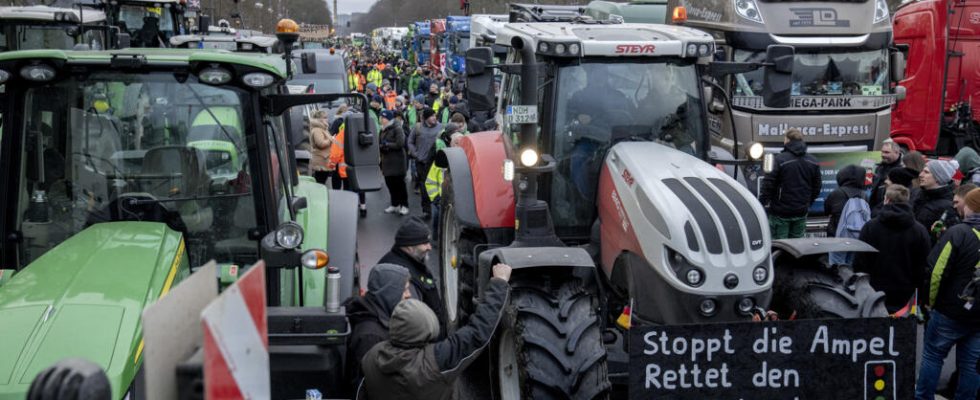In Berlin, more than 10,000 farmers took to the streets at the start of the week in the government district and nothing seems to calm the movement. Among the demonstrators, Thomas Domin, a farmer and breeder from Brandenburg in the former GDR, who has been mobilized for weeks.
From our correspondent in Berlin,
Thomas Domin, in his forties, took over the operation founded by his father in 1997 during the privatization of the communist regime’s cooperatives. 400 hectares, animals. A typical example of what we call here a Mischbetrieb, a mixed exploitation. For him, nothing works without diesel.
“ The reduction in subsidies on diesel is quite simply a tax increase, because agricultural companies have always benefited from the advantage of having part of the tax on diesel reimbursed at the end of the year. That this advantage is simply removed is just the straw that broke the camel’s back. We keep tightening the screw and prices keep rising. When we talk about a diesel subsidy, it’s not even a lot of money. In my case, these are between 6,000 and 7 000 euros per year. But the sum of the cuts is what finishes us off. That’s why we go to the streets to show that we don’t let ourselves be fooled anymore.. »
Read alsoGermany: farmers in force in Berlin to put pressure on the government
The German government taken by surprise
The virulence of the demonstrations, the scale taken by the movement took place suddenly Germany.
“ It must be said that the government has not thought things through to the end », explains Klaus Müller, from the agronomy department of the Leibnitz center. “ After the decision of the Constitutional Court which reversed the budget, they just wondered where to quickly find the billions in necessary savings. And that’s how we decided that a professional category which represents, let’s say 1% of the population, would bear 6% of the savings to be made. »
Read alsoWind of social anger in Germany
Go until the end
Thomas Domin is part of this generation of young farmers open to reforms and concerned about the environment. To cut the winds and combat dry soil, he planted groves at the edge of the fields. The measure is expensive, some neighbors skeptical.
But changes are, in Thomas’ eyes, inevitable. “ Yes, agriculture will change, it must change, it is indisputable. We want to get by with less subsidies, but we still need to have our own livelihood. And we must take into account world market prices. However, we cannot always produce at this level. Subsidies compensate for this gap. »
A month after the start of their movement, the farmers are determined to see it through to the end.
Also listenConspirators seize the farmers’ protest in Germany
